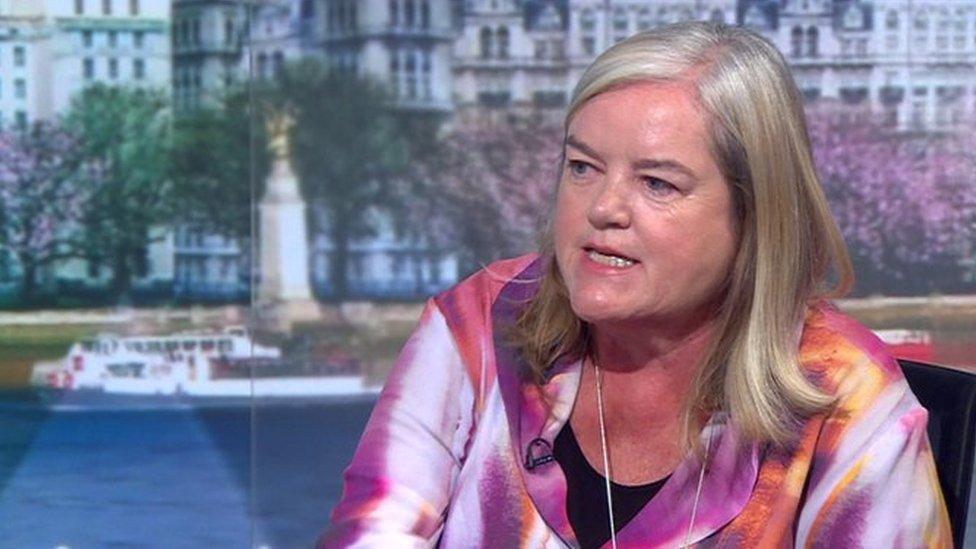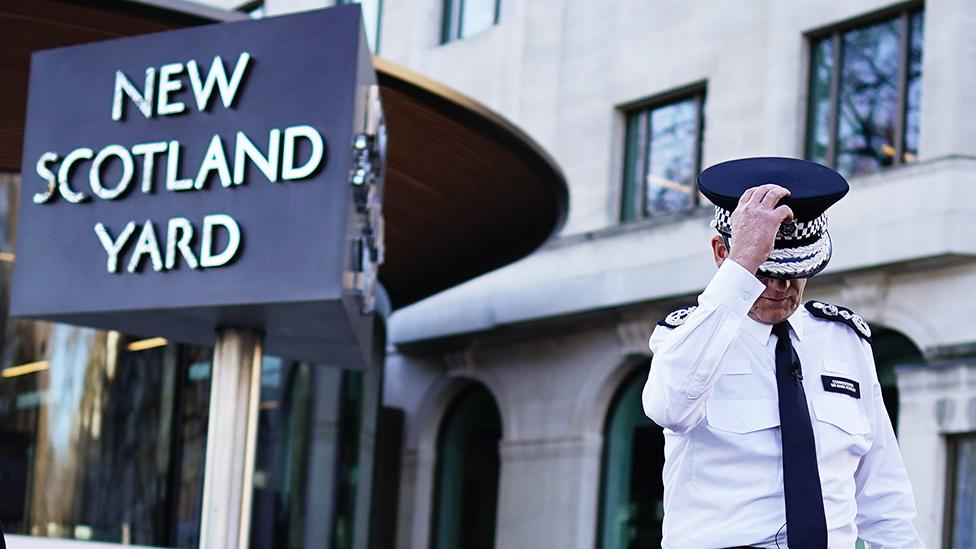Baroness Louise Casey would work for Starmer government
- Published
Baroness Casey found the Met Police service was "just not good enough" and it was "all a bit shocking".
Baroness Louise Casey has told the BBC she would work as a minister under Sir Keir Starmer if it was a job where she "could get something done".
Speaking to the Political Thinking with Nick Robinson podcast, the crossbench peer said she supported Sir Keir's five missions for the country.
She also said the country needed a change of government and "high-quality people" to "get things done".
However she doubted the Labour leader would make her a minister.
But Baroness Casey suggested she could also work for Sir Keir as an independent policy adviser, saying "good government gets things done".
She said: "Whether you employ people like me to be a sort of tsar figure or whether you get a minister to do the job they're doing, what we need is high quality people.
"And, you know, there are plenty of people younger than me that could do it as well."
A former deputy director of homeless charity Shelter, Baroness Casey has performed a number of high-profile roles as an adviser to Labour and Conservative-led governments, on rough sleeping, anti-social behaviour, victims' rights, and "troubled families".
Most recently, following the murder of Sarah Everard by a serving police officer, the peer produced a damning report on the culture of the Metropolitan Police, finding institutional racism, sexism and homophobia across the force.
'Evils'
Baroness Casey said she would "love to" chair a new Beveridge-type report.
A wide-ranging report on social welfare by civil servant William Beveridge, widely seen as instrumental in the post-war establishment of the welfare state, was published in 1942.
"We're not in a post-war situation, and we do have an NHS and we do have a free education system," the peer said.
But, she added, there were "evils" that were doing damage to society, such as the scale of homelessness and the growth of foodbanks since before the pandemic.
"Why are children hungry in this country?" and "why can't we make getting old easier?", she asked.
Baroness Casey was also asked about the government's resistance to handing over WhatsApp messages involving ministers and officials in full to the Covid inquiry.
Ministers are challenging this in court, arguing that "unambiguously irrelevant" and private information should not be disclosed.
But Baroness Casey said "people need to get over it", and that former senior judge Baroness Heather Hallett, who is leading the inquiry, would "know the difference between ministers throwing about ideas and people doing wrong things".
She added that Baroness Hallett would operate at the "highest integrity possible" and would not set out to be political or to go for individuals in departments.
Political Thinking with Nick Robinson is available on BBC Sounds, and can be heard on Radio 4 at 17:30 on Saturday 9 June
Related topics
- Published7 June 2023

- Published21 March 2023

- Published6 June 2023
